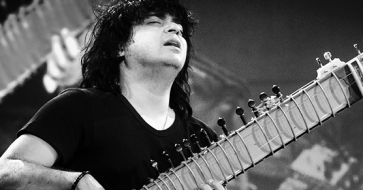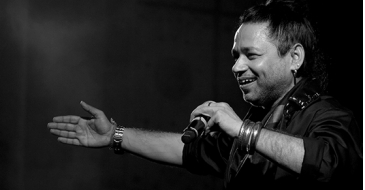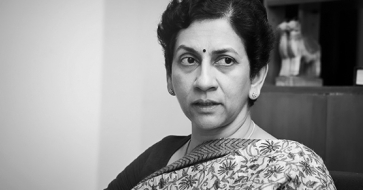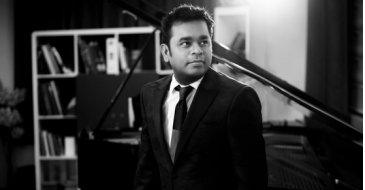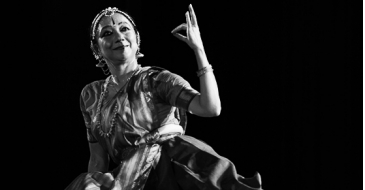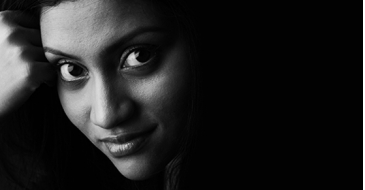Your name, Vidya, means divine knowledge. How has acting as a profession been an education and a learning for you?
Oh wow, that's a first! I'm very interested in people, I love getting to know people. I feel there is no better preparation for an actor than living life itself. And conversely, being an actor, you are living two lives simultaneously – your own and the character's. You are working very closely and intensely with a set of people. This allows you to understand a lot of things about human behaviour. So yes, it works both ways – life has taught me about acting and acting has taught me about life. It has helped me understand people better. I think I can comfortably claim that it has made me more understanding, accepting, perceptive of human nature and human behaviour.
So when you say that acting is a window to understanding human behaviour, then it means a role is much more than a role for you. Isn't it?
Absolutely! As I look at acting as living another person's life. Sometimes, you‘re able to live another person's life more honestly and truly and transparently, and sometimes you're not. But I think the attempt is always to live another person's life, to walk in his or her shoes for a while, which is why I said I'm interested in people. I've always wondered why people do what they do, why they think the way they do, why they say the things they do. There are never straight answers to all this. Some part of that answer gets revealed to you when you're inhabiting a character, the character's world or mind for that matter. I don't know what it is just to play a role. I don't see how playing a role can leave no impact on me. You understand a little more about yourself, the character you are playing and about the world. Being an actor cannot be divorced from all these other experiences.
Can you take us through the process of inhabiting the roles in your women-centric movies? Audiences have been struck by narishakti roles such as Vidya Bagchi from Kahaani. Is the preparation a process?
I don't have a process or anything. I read the script and spend a considerable amount of time with the director because the director is the person who visualises the character and the story and it is his or her vision that I am living out. That is very important for me. If there is a skill to be acquired like learning a dialect or driving a vehicle or playing an instrument, then one acquires those skills. But otherwise, the process of getting into the skin and heart of the person is really about conversations with the director. Questions – a lot of questions arise. But you actually begin to get into the skin of the character when you start playing the person. I don't know whether it happens at the preparatory phase or while shooting. But I think that empathy develops and grows over time. So there is no real process… just lots of conversations. I am a very conversations' person so I spend a lot of time with the director talking about it.
Do you think it is important to challenge stereotypes about women through your cinema? You have breathed life into such bold and powerful characters such as Silk, Vidya and the delightful Sulu
I get bored very easily. I am restless. I need to keep challenging myself, to do new things all the time.

And portraying these bold and powerful women – could it bore you at some point?
No, because they are not the same kind of people. I get bored which is why I look for new characters to play, a new story to tell every single time. The beauty about being an actor is no two people that I have played are the same. They may share similarities but they are never the same. And that's what makes it so complex and intriguing.
It's not about defying stereotypes. I'm a strong, independent individual and therefore I tend to choose characters that are an extension of that. Even if I start out as someone who's weak, invariably the character finds her strength by the end of the film. Those are the kind of stories that resonate with me. I remember someone telling me that every character has to have a graph. What the character does not do at the beginning of the film he/she must end up doing by the end of the film. That character graph is interesting for me to play. I'm not really intentionally defying stereotypes but I think stereotypes are boring, limiting and I don't understand them. I've seen different kinds of people around me throughout my life. We all have and we want to put them in boxes and I'm very grateful that at home, I was always encouraged to see people for who they are, not generalise. When people tell me, “Oh, you've played a homemaker in a film before,” I feel I can play a doctor in two films, I can play a prostitute in two films but the two won't be the same. Each individual, each story is different and as long as that individuality comes through when I hear a story, it's exciting for me.
Haven't you redefined glamour in a sense simply by projecting women who may not fit into our boxes? What is your idea of glamour?
I don't have a definition for glamour. There are people I've found glamorous, who are invariably very interested in themselves. And there are people who are interested in dressing up, who have an innate sense of style. I don't see any one type of person as being glamorous – one body type or one type of garment that's glamorous. I think it's just the persona which is glamorous. I don't understand empty glamour. I don't have an understanding of glamour in the conventional sense. I think one of the people I find glamorous and timeless is Rekha. She wears a kanjivaram saree (a traditional saree), with flowers in her hair. When you think of glamour, she comes to mind. She is a glamorous person. For me, it's whether the personality is glamorous or not.
I revel in the fact that I'm a woman. I love being a woman. And I will be successful and powerful. I don't see the softer qualities as a compromise on strength or power
What are the values you have had to grow, while painting characters such as Begum Jaan and Silk on screen?
No, I don't think I've had to really cultivate anything. Being a student of Sociology has also helped me. I'm not made like Begum Jaan, yet I understand where she's coming from. When you're ready to give the other person the benefit of the doubt, when you're ready to have empathy for the other person who is in complete contrast to who you are, you cultivate empathy for all kinds of people. Empathy comes from being non-judgemental. As an actor, if I don't have empathy for the character, if I'm judgemental about the character, I can't play the character. Being non-judgemental is something I've learnt to do as an actor and as a person. With experiences in life, you reach a stage where you realise people have reasons for doing what they do.

Considering your women-centric movies have been received well by audiences, do you feel the need to make similar choices in the future?
I didn't set out to do women-centric cinema but I am at the centre of my universe. I happen to be a woman so I choose films where women are at the centre. It's not to make a point or to further any sort of ism. It's because this is the only way I know how to do it. And there are more women around us who are coming into their own, living life the way they want to, which is why more of these stories are emanating, inspiring writers and more audiences are interested in watching such films.
And does that make you happy as an actor?
Very happy! Sometimes a film works and sometimes it doesn't but I love the kind of work I do as an actor.
You've said you look forward to portraying Indira Gandhi, described by many as the only man in the cabinet. She's associated with ideas like aggression, assertion, dominance. Do you think these ideas are best expressed in a context of power?
No, I think that power is a male preserve. Anyone who is making decisions, who wields power, who is being demanding, aggressive comes to be called a man. She was called the only man in the cabinet because power has not been associated with women historically. What has always fascinated me about Indira Gandhi is the person behind the persona. She was all woman, yet extremely powerful. There is a need to emasculate power in a sense. And that is of interest to me. Even today, people are quick to make judgements about female politicians and say, “Unless you're a man, you have no place in politics,” which is rubbish. It really depends on how you define femininity and masculinity. Power has only been described in masculine terms. You may use the word strength to describe a woman but powerful? Not easily. That is changing all around us.
I think men tend to use logic more. But the ones who use a combination of logic and instinct are the ones who go really far. And I believe those who listen to their instinct go the farthest!
Is there a need to also feminize power then?
I think there is a need to realise that in each of us, there is a masculine and a feminine side and one is usually predominant. So we have to begin to discover the other side of power - the feminine aspect.
We associate women with sensitivity, empathy, guilt and overcompensation and a certain softness. I feel women are also capable of being demanding, aggressive, assertive, while maintaining their softer qualities. Also, women have felt that the only way they would get taken seriously was if they came across like men, maybe because they were in male-dominated spaces where they felt they didn't want to stand out for being women. That's changing. I revel in the fact that I'm a woman. I love being a woman. And I will be successful and powerful. I don't see the softer qualities as a compromise on strength or power.
Do you feel there is a need for balance between the feminine and a masculine attributes? Is there a tussle between these qualities within a character?
A woman does not have to be a mother in the workspace but she does not have to be an autocratic, tyrannical ruler either. If that's what she chooses to be, it's great. But I'm saying it's not an either/or. We are so entrenched in our definitions of what is feminine and what is not, that even in our workspace, we feel we are more understanding because of our feminine empathy. We don't want to be seen as weak. We do not portray the masculine detachment, the compartmentalisation that men do very easily. I think there are no straight answers. I am also grappling, thinking and having this conversation and I think it's about finding that balance within ourselves unapologetically. With more women in the workforce, that will happen.
You said you like having conversations with directors while understanding a character. Have you ever felt confusion about how to interpret a role? Can you give me an example?
I think I'm always intimidated by a role, by a new a new person that I encounter. It's never easy. I remember when I was playing Silk, I would keep going to Milan Luthria's office for a chat. He would find reasons to run away, saying, “You're asking too many questions and I don't have the answers. All I know is that you have to be free in the mind.” And I would keep wondering what that meant and how that would help my character. But it began to make sense to me when I began to shoot for the film. He also told me, “If you judge Silk, people will. If you respect her, people will. Choose what you want to do.” What he said was so pertinent. Silk and I are as different as different can be. I would probably not understand, until The Dirty Picture, why someone would compromise and get exploited to get work as an actor. There was a certain arrogance in me that I've not had to do it. But after doing The Dirty Picture, I realised that each of us has a story and it's our story that determines who we become, the choices we make. I realised that I had to be accepting of the fact that this is the route she chose to stardom. There is no right or wrong to it. And that is also what liberated me to be free in my mind and therefore in my body, to be able to do what I did in the film.
How has your instinct guided your journey as an actor?
I read a book gifted to me by my sister – Blink by Malcolm Gladwell. It tells you about how we always know what we want to do. You walk into a house and within thirty seconds, you know whether you want to buy it. You walk into a job interview and you already know whether you are going to get the job. It happens to me with films - someone's narrating a story and I already know if I'm going to do it. Sometimes, I know I'm not going to do it and end up doing it for other reasons. Those are the wrong reasons. So I've learnt over time to listen to my instinct. There's no logic or science behind it. It's an inner voice that's guiding you. We almost stifle that. And while I can say that I have paid heed most of the time, a lot of times I haven't. When the experience of the film played out or when the film reached the theatres, I know I did not follow my gut. I still think that everything happens for a reason.
There are times when I try and use other reasons to seduce myself to go against my instinct. For example, when there is a film that I don't want to do and the director is saying he wrote it with me in mind, it's very flattering. And then, after the film, I've been reminded of how I didn't listen to my instinct.
So you are saying instinct is a sacrosanct idea?
Yes...
Do women tend to use instinct more than men do?
I don't think so. I think men tend to use logic more. But the ones who use a combination of logic and instinct are the ones who go really far. And I believe those who listen to their instinct go the farthest!
Interviewed by Anjana Raghu Ram
0 comments Comments





